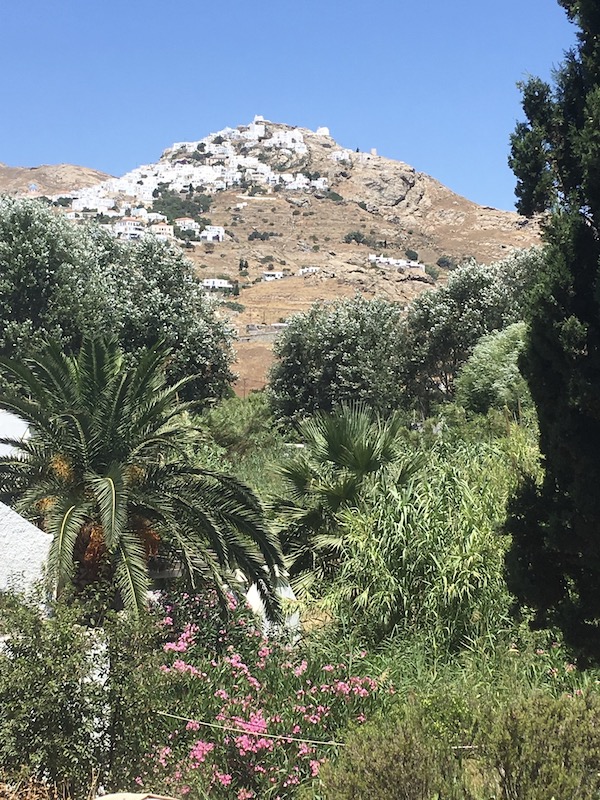Brown Spider
Off the concrete dock, arrow fish dart for bread tossed by children
who scream in the endless light of the moment,
and like an inverted house the desultory ferry noses from the mist,
the mystery of what appears then disappears,
mystery of how I must appear to the chic young American couple
leaning together like sleek cats: an island of bald above,
a bit of pot below, some aging euro-guy with whitewash
splashes on his wrist and a peach stuck in his shorts.
But for me the years flip back like riffled cards, and all the times I
waited here eyeing tourists shuffle behind my eyes,
from the shy teen in a fisherman’s cap darkening notebooks with
hot, unsaid yearnings to when I was panther-strong and
shirtless, climbing the piled boulders over the seawall and
biting the red smile off a watermelon slice.
And the body holds phantom sensations---a French spirit pushes
her bottom to my crotch and holds onto the rock-face
below the church;
a Dutch ghost throws herself back onto the sand with me, the
bonfire roasting our toes, the stars of the ancients
wheeling overhead, and puts her wrist on mine till I
have courage to ask her back to my little blue tent;
and in every shop and restaurant the shade of my ex-wife smiles
from beneath a black shock of curling hair.
On this island, even the ghosts are haunted.
Maybe at Mega Livadi, the shades of the miners shot down in the
strike of 1916 still chitter in their tumbled houses,
and the surf still turns white shards of bone from the policemen
driven into the sea and stoned to death by their furious
widows.
Maybe when the meltemi wind blows the one-eyed giant still roars
on the cliff edge, tossing boulders blindly after Nobody
rowing madly out to sea in his cursed ship.
My mother, half-deaf, and shrunken with age, walks carefully with
her new hip, yet still in the world hidden behind the
world is bouncing up mountain steps like a goat,
laughing as her hair leaps dark flame.
Andonis, my friend, always brown and naked on the beach where
his taverna stands, is rowing his little boat out to the
narrow cave.
Come back! But he won’t come back. On his neck, a sunspot like a
brown spider spread its web and killed him last winter.
Meanwhile, back on the dock, the Greeks edge forward banging
ankles with handbags as the ferry pirouettes about,
the rope balls are thrown and looped about the bollards, the great
hawsers snap taut, spritzing water as the ship’s
winched in,
and the tourists start to strain against the moment, hounds against
the leash,
leaping forward in their minds to when the great gangplank falls
and the ship mouth opens to take them into its black
throat,
we humans always yearning, unsatisfied, living only in anticipation
and fear of what is about to appear or disappear, each
one eager to be the first to leave paradise.

Tony Barnstone teaches at Whittier College and is the author of 20 books and a music CD,Tokyo’s Burning: WWII Songs. His poetry books includePulp Sonnets; Beast in the Apartment;Tongue of War: From Pearl Harbor to Nagasaki;The Golem of Los Angeles; Sad Jazz: Sonnets; and Impure. He is also a distinguished translator of Chinese literature, anthologist, and world literature textbook editor.
